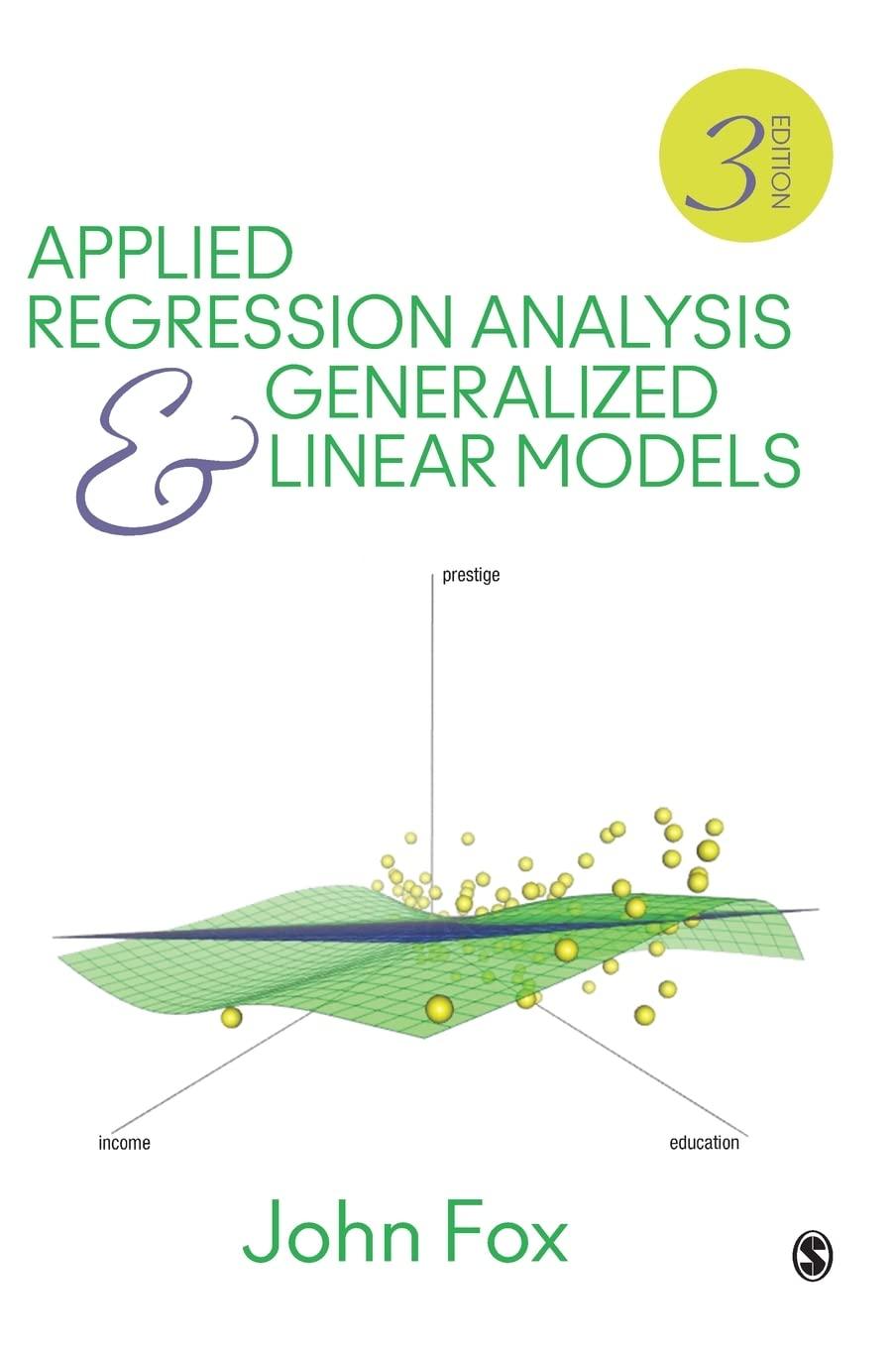Independence from irrelevant alternatives: In the polytomous logit model discussed in Section 14.2.1, the logit for a
Question:
Independence from irrelevant alternatives: In the polytomous logit model discussed in Section 14.2.1, the logit for a particular pair of categories depends on the coefficients for those categories but not on those for other categories in the model. Show that this is the case. (Hint: See Equation 14.2.1.) In the context of a discrete-choice model (e.g., Greene, 2003, chap. 21; or Alvarez & Nagler, 1998), this property can be interpreted to mean that the relative odds for a pair of categories is independent of the other categories in the choice set.
Why is this often an implausible assumption? (Hint: Consider a multiparty election in a jurisdiction, such as Canada or the United Kingdom, where some parties field candidates in only part of the country, or what happens to the electoral map when a new party is formed.) For this reason, models such as the polytomous probit model that do not assume independence from irrelevant alternatives are sometimes preferred.
Step by Step Answer:

Applied Regression Analysis And Generalized Linear Models
ISBN: 9781452205663
3rd Edition
Authors: By John Fox





